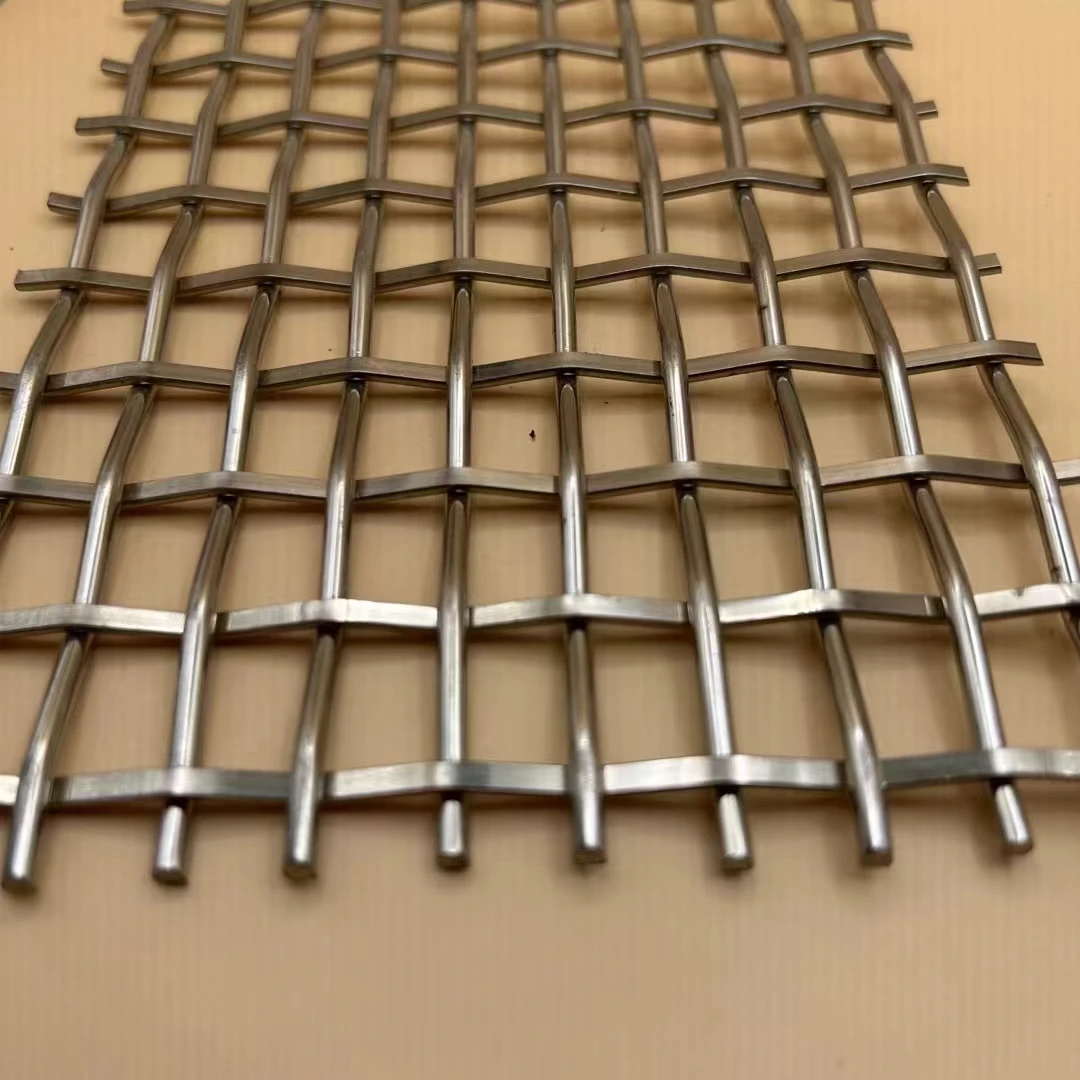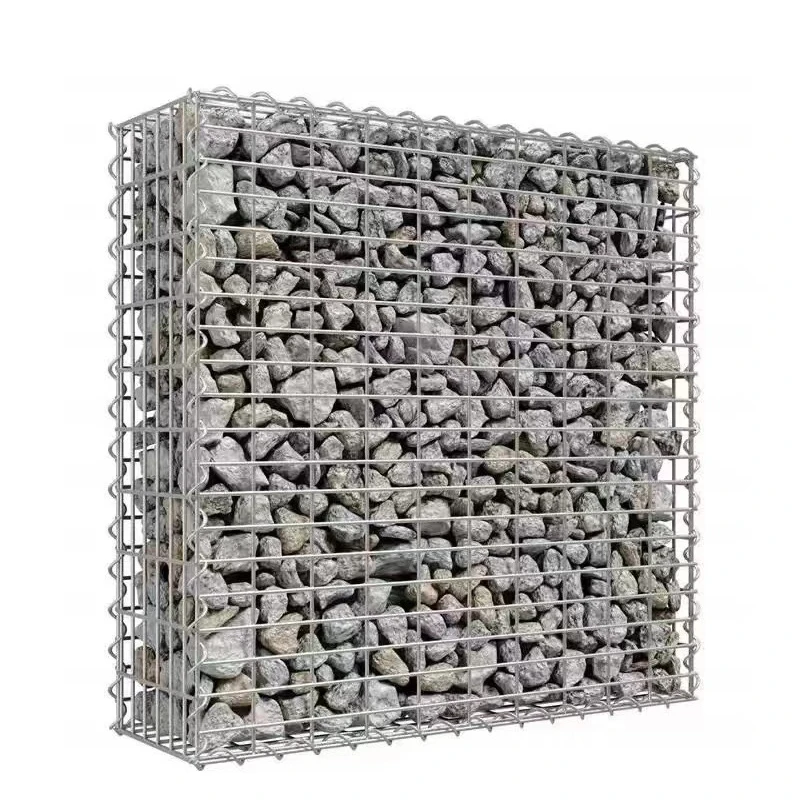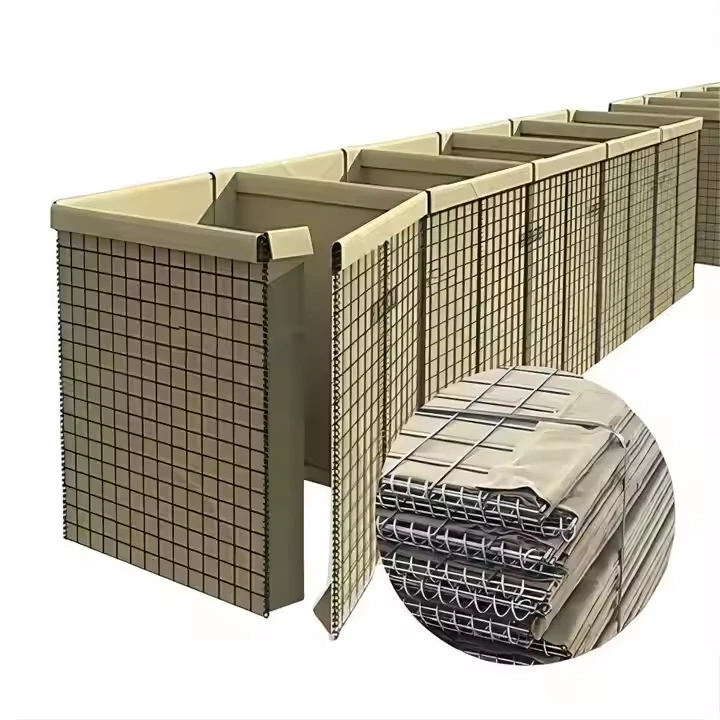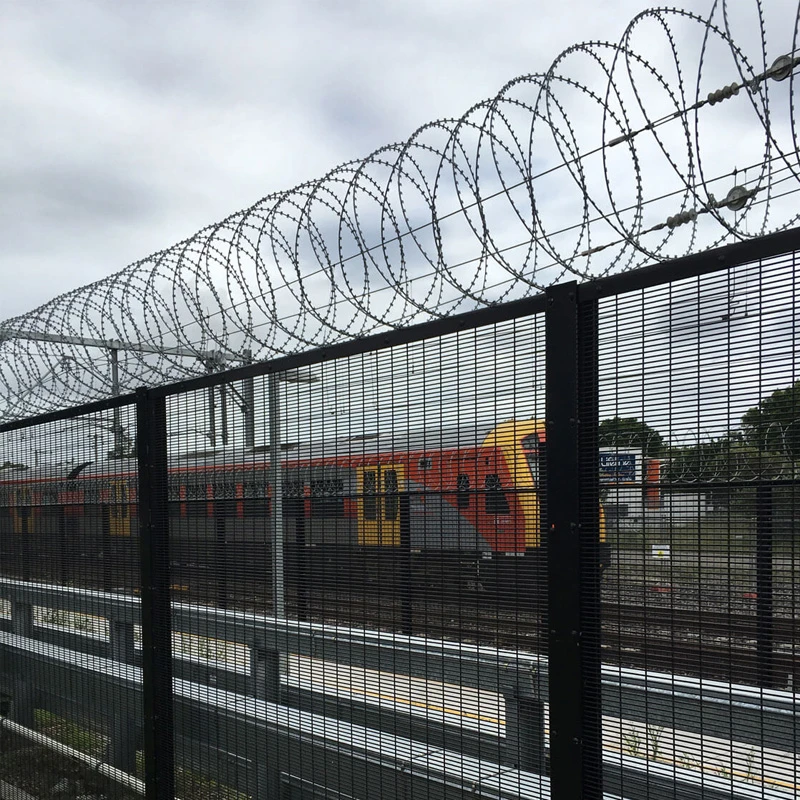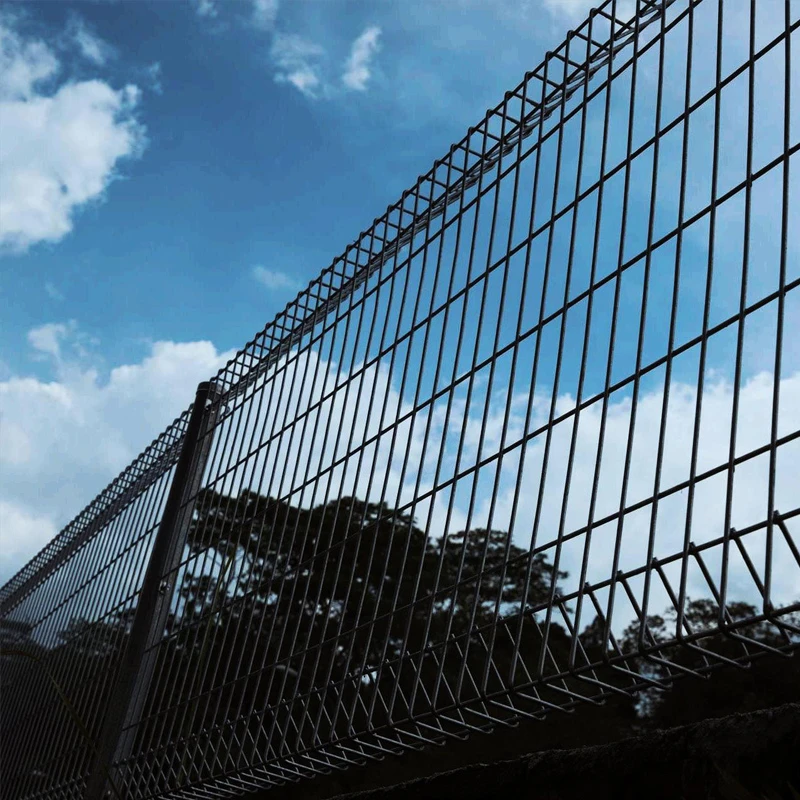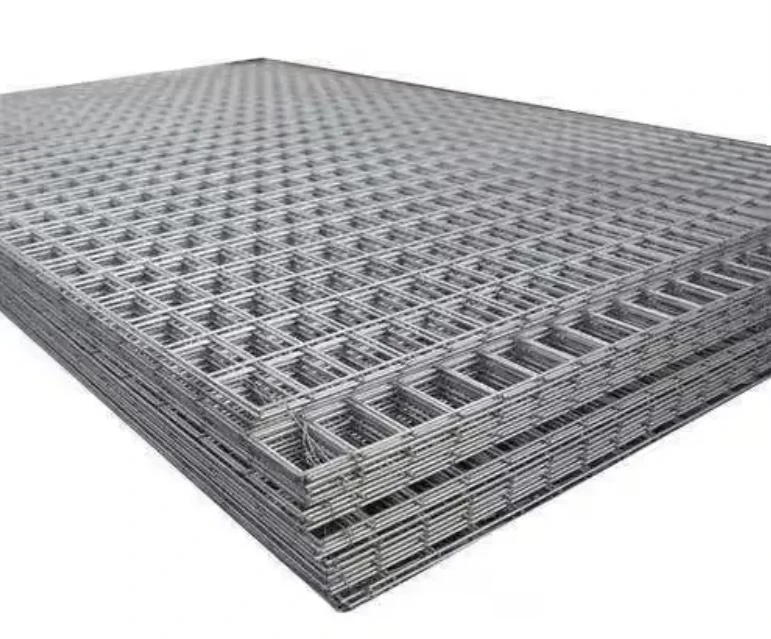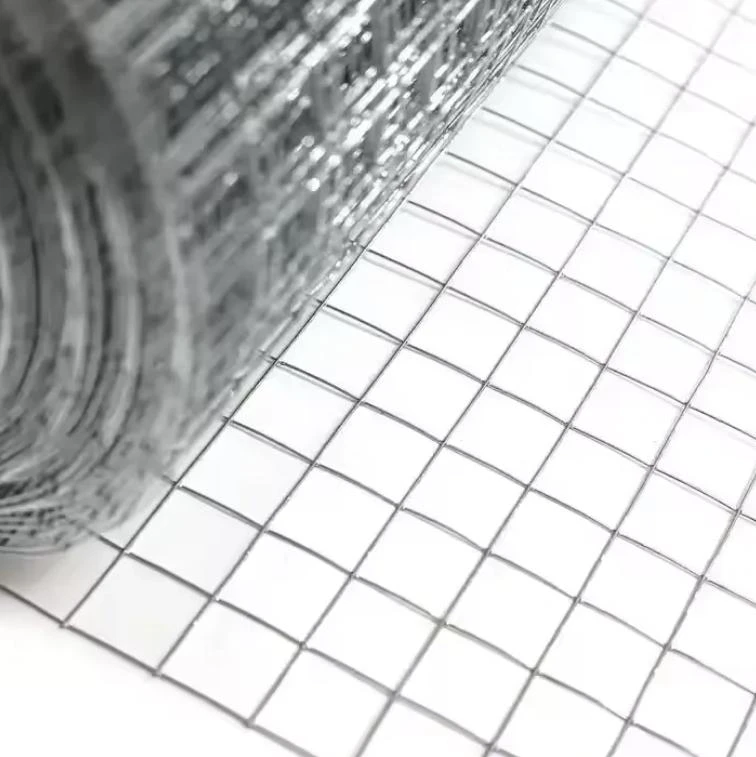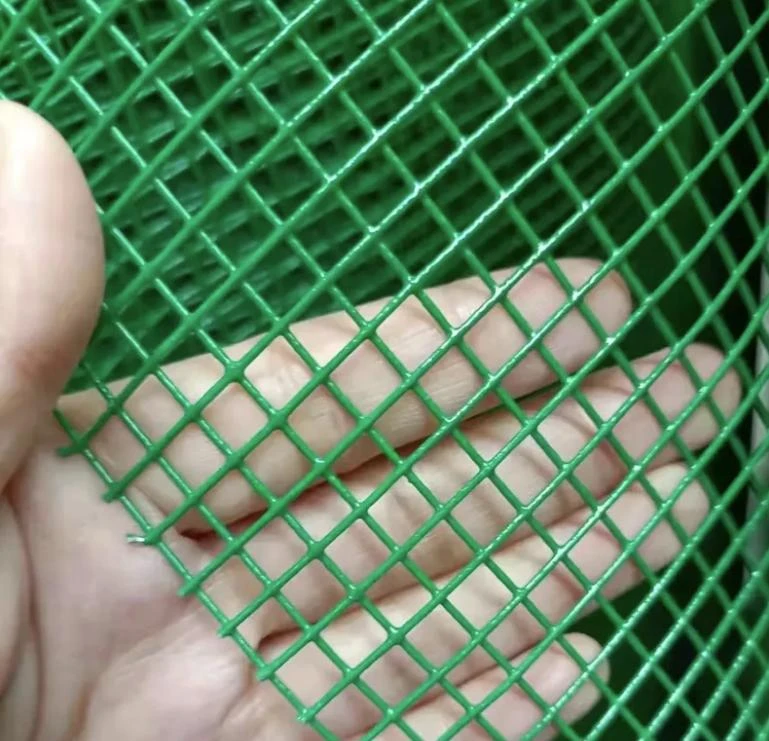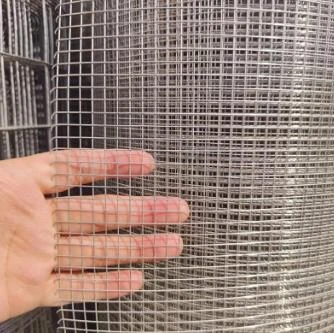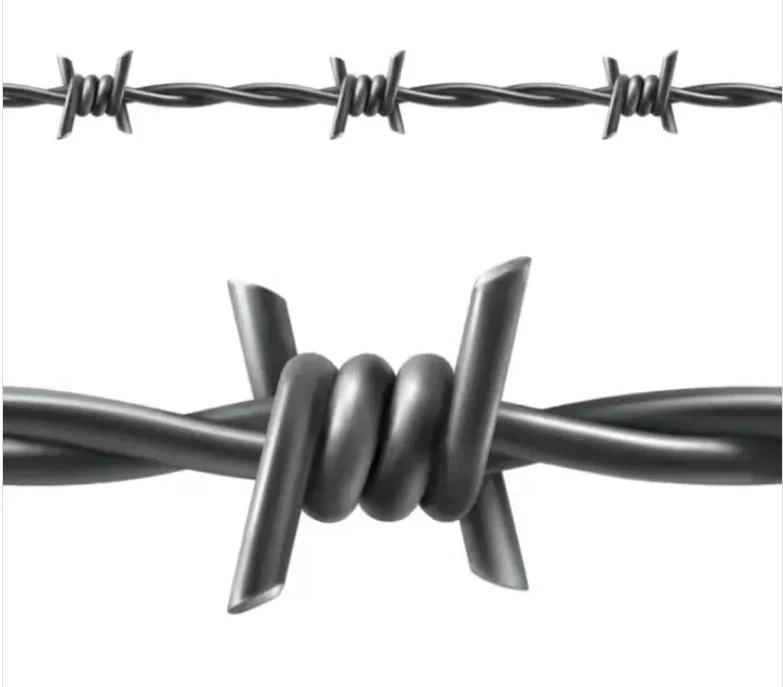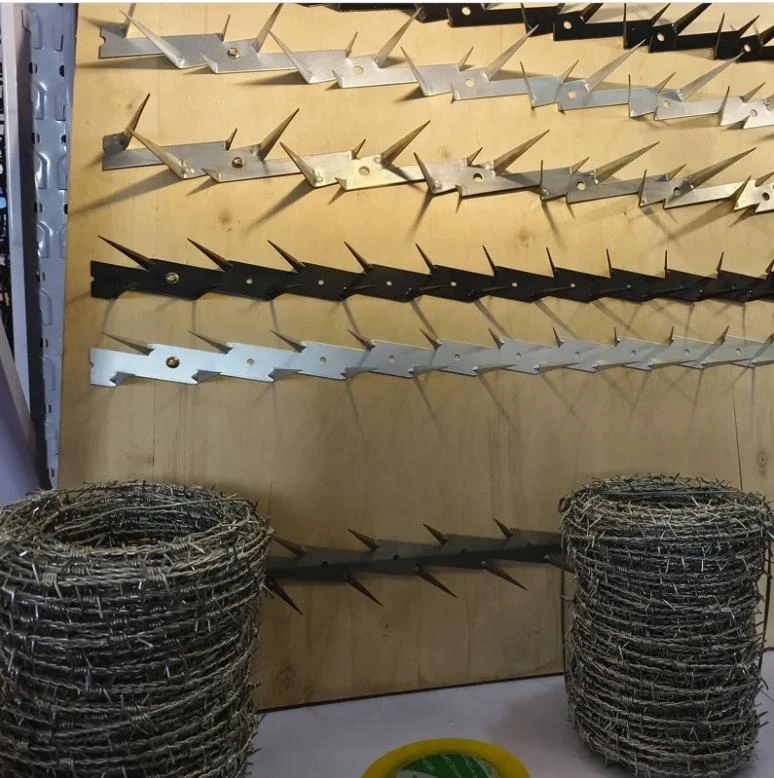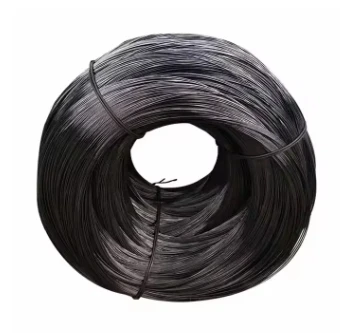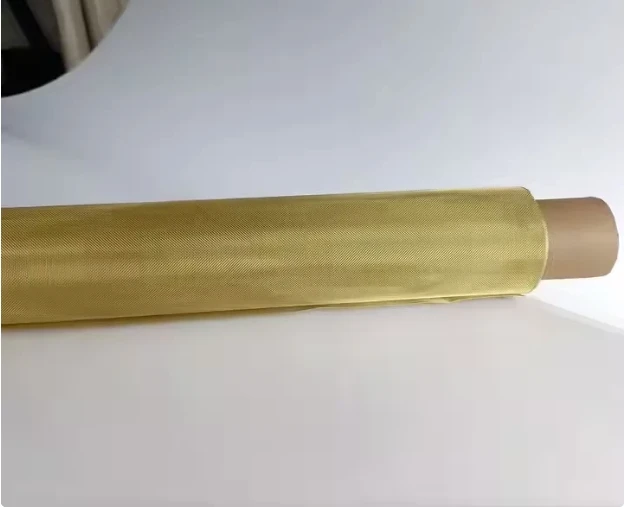Prezantimi i rrjetës së telit katror
Në peizazhin gjithnjë në zhvillim të ndërtimit, prodhimit dhe aplikimeve të ndryshme industriale, kërkesa për materiale të besueshme dhe të gjithanshme është parësore. Ndër këto materiale, Square Wire Mesh spikat si një zgjedhje e preferuar në shumë sektorë. Me vetitë e tij unike dhe aplikimet e gjera, Square Wire Mesh ka fituar popullaritet në vendet anembanë globit, falë cilësisë së tij të jashtëzakonshme, teknologjisë së përparuar dhe avantazheve të shumta.
Rrjeta katrore e telit është një lloj rrjetë teli të endur që karakterizohet nga hapjet e saj në formë katrore. Zakonisht është bërë nga çeliku me cilësi të lartë, çelik inox ose materiale të tjera të qëndrueshme, duke siguruar forcë dhe jetëgjatësi. Rrjeta prodhohet përmes një procesi thurjeje që krijon një model si rrjetë, duke e bërë atë të përshtatshme për aplikime të ndryshme, nga ndërtimi në bujqësi.
Përshkrimi i produktit
1.Material: AISI302, 304,316,316L,310S,410,430,904L,2205,2507,etc
2.Wire Diameter: 0.015-2.8mm
3. Numri i rrjetave:
Plain weave can be woven up to 400 mesh.
Twill weave can be woven from 400 to 635mesh.
Dutch weave can be woven up to 3500mesh
- Modeli i thurjes:
Endje e thjeshtë, Endje Twill, Endje holandeze, etj.
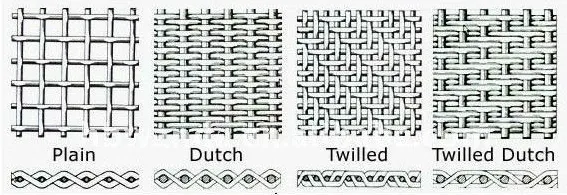
Veçoritë
Rezistenca ndaj korrozionit.
Anti-acid dhe alkali
Kundër temperaturës së lartë.
Performancë e mirë e filtrit.
Jetë e gjatë përdorimi
Aplikimi
Në mjedisin acid, alkali kushtëzon sitën dhe filtrimin.
Industria e naftës si rrjetë balte,.
Industria e fibrave kimike si rrjetë ekrani.
Industria e plasimit si rrjetë pastrimi me acid.
Detajet e produktit
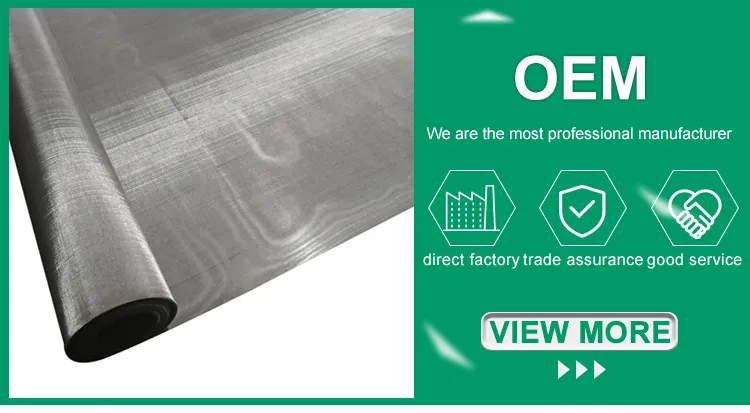
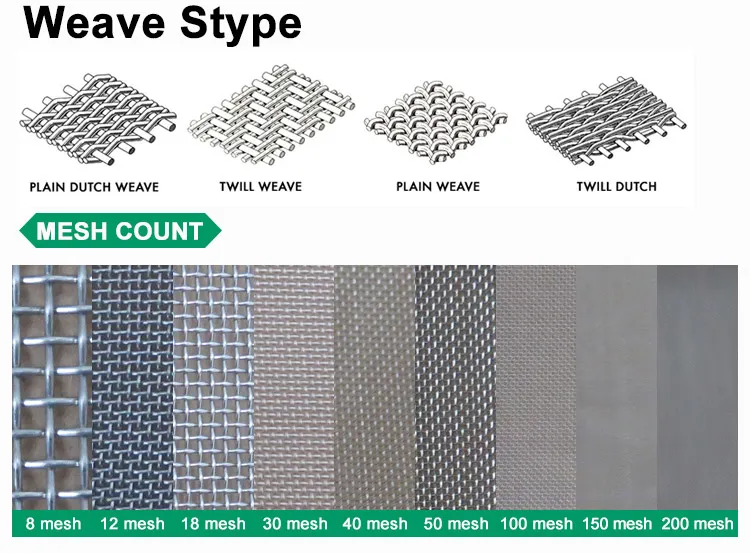
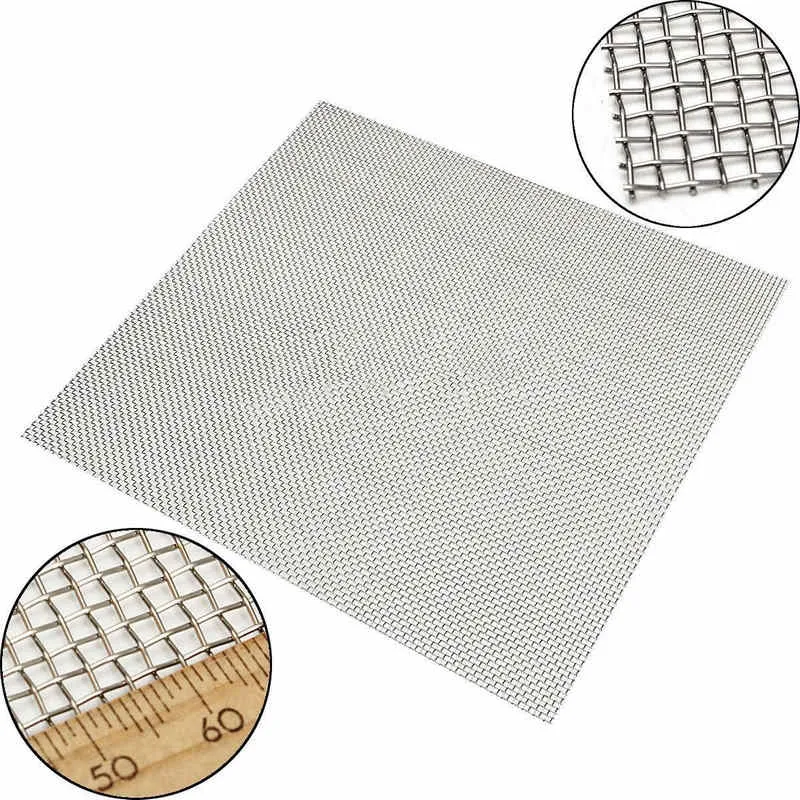
Cilësi që mund t'i besoni
Rrjeta me tela katrore është krijuar nga materiale me cilësi të lartë, duke siguruar që ajo të përmbushë standardet rigoroze të kërkuara nga industri të ndryshme. E bërë zakonisht nga çelik inox, çeliku i galvanizuar ose metale të tjera të qëndrueshme, kjo rrjetë është projektuar për t'i bërë ballë kushteve të vështira mjedisore. Ndërtimi i tij i fortë siguron rezistencë të shkëlqyeshme ndaj korrozionit, ndryshkut dhe konsumit, duke e bërë atë të përshtatshëm për aplikime të brendshme dhe të jashtme. Hapjet uniforme katrore në rrjetë lejojnë performancë të qëndrueshme, duke siguruar që ajo të mund të përballojë kërkesat e çdo projekti.
Avantazhet që bien në sy
Një nga avantazhet kryesore të Square Wire Mesh është shkathtësia e saj. Mund të përdoret në një sërë aplikimesh, nga gardhet dhe pengesat e sigurisë deri te sistemet e filtrimit dhe dizajnet arkitekturore. Rrjeta është e disponueshme në madhësi të ndryshme dhe matës teli, duke lejuar personalizimin për të përmbushur kërkesat specifike të projektit. Kjo përshtatshmëri e bën atë një zgjedhje ideale për industri të tilla si bujqësia, ndërtimi, miniera dhe prodhimi.
Një përfitim tjetër i rëndësishëm është lehtësia e instalimit. Rrjeta me tela katrore mund të pritet, formohet dhe saldohet lehtësisht, duke e bërë atë një opsion të përshtatshëm për kontraktorët dhe entuziastët e DIY. Natyra e tij e lehtë lejon trajtimin e drejtpërdrejtë, duke reduktuar kostot e punës dhe kohën gjatë instalimit. Për më tepër, dizajni i hapur i rrjetës promovon rrjedhën e ajrit dhe kullimin, duke e bërë atë një zgjedhje të shkëlqyer për aplikimet e peizazhit dhe kopshtarisë.
Mjedisi i Përdorimit
Sheshi Wire Mesh është projektuar për të performuar jashtëzakonisht mirë në mjedise të ndryshme. Në mjediset bujqësore, përdoret zakonisht për rrethimin e bagëtive, krijimin e kafazeve për ngjitjen e bimëve dhe si barriera mbrojtëse për të korrat. Në ndërtim, ai shërben si përforcim për betonin, duke siguruar forcë dhe qëndrueshmëri të shtuar për strukturat. Rrjeta përdoret gjithashtu gjerësisht në aplikime industriale, të tilla si në prodhimin e ekraneve, filtrave dhe mbrojtësve të sigurisë.
Weave Patterns Explained: Plain, Twill & Dutch Weave in Square Wire Mesh
The performance of square weave mesh hinges on its weave pattern, with plain, twill, and Dutch weaves each engineered to meet distinct industrial demands. JINJIU’s expertise in metal weave mesh ensures each pattern—crafted from materials like stainless steel weave mesh—delivers precision, strength, and versatility across applications.
Plain weave, the most recognizable pattern, features alternating warp and weft wires crossing at 90-degree angles, creating uniform square or rectangular openings (0.5mm to 10mm). This simplicity makes square weave mesh ideal for general-purpose uses: as safety guards for machinery, where visibility and airflow matter, or as fencing for animal enclosures. Constructed from metal weave mesh (carbon steel or stainless steel), plain weave balances cost-effectiveness with durability. For corrosive environments—such as chemical processing plants—stainless steel weave mesh in plain weave resists rust, ensuring long-term reliability.
Twill weave introduces a diagonal texture, formed by warp wires passing over two or more weft wires before alternating. This design enhances tensile strength, making it suitable for high-stress applications. Square weave mesh in twill weave often uses thicker wires (0.8mm to 3mm), making it a top choice for heavy-duty industrial filters or reinforcing panels in construction. Its dense structure blocks debris while maintaining structural integrity, a trait amplified when crafted from stainless steel weave mesh for resistance to high temperatures or pressure.
Dutch weave stands out for its tight, dense pattern: finer weft wires are closely spaced and woven over/under thicker warp wires, creating a smooth surface with minimal openings (as small as 0.02mm). Dutch weave mesh excels in precision filtering—from water treatment (removing micro-particles) to pharmaceutical manufacturing (sifting fine powders). JINJIU’s Dutch weave mesh uses stainless steel weave mesh as standard, ensuring chemical resistance and easy cleaning, critical for sterile environments.
Each pattern in square weave mesh serves a purpose: plain for accessibility, twill for strength, and Dutch for precision. As a leader in metal weave mesh, JINJIU tailors these patterns to industry needs—whether a plain weave fence for agriculture or Dutch weave mesh for high-purity filtration—proving that the right weave transforms a simple mesh into a targeted solution.
From Oil Filtration to Agriculture: Industrial Applications of Square Wire Mesh
Square weave mesh emerges as a versatile workhorse across industries, with its adaptability rooted in diverse configurations—from fine Dutch weave mesh to rugged metal weave mesh. JINJIU’s range, including corrosion-resistant stainless steel weave mesh, ensures tailored solutions for applications as varied as oil filtration and agricultural fencing.
In oil and gas, precision is non-negotiable, making Dutch weave mesh indispensable. Its tightly woven structure (with weft wires finer than warp wires) filters out micro-particles (as small as 0.01mm) from crude oil or hydraulic fluids, preventing equipment damage. Stainless steel weave mesh variants excel here: their resistance to high temperatures (up to 800°C) and chemical corrosion ensures longevity in refineries, where exposure to hydrocarbons and solvents is constant.
Water treatment facilities rely on square weave mesh for purification. Municipal plants use stainless steel weave mesh in sediment filters, capturing debris while withstanding chlorinated water. For industrial wastewater, metal weave mesh with larger openings (5-10mm) acts as a pre-filter, removing sludge before finer treatments—its durability allows for frequent backwashing without tearing.
Agriculture benefits from the mesh’s rugged simplicity. Square weave mesh fencing protects crops from wildlife: 2-5cm openings deter rodents and birds while letting sunlight penetrate. Livestock enclosures use heavier metal weave mesh, with 10-20mm openings containing cattle or sheep without restricting movement. In greenhouse settings, stainless steel weave mesh trellises support climbing plants (cucumbers, beans), resisting humidity and fungal growth better than plastic alternatives.
Construction and mining leverage square weave mesh for reinforcement. Metal weave mesh panels reinforce concrete in tunnels or retaining walls, distributing stress to prevent cracks. Mining operations use it as screens to separate ore sizes, with stainless steel weave mesh variants enduring abrasive materials and harsh chemicals.
Agricultural fencing finds square weave mesh ideal for containing poultry or livestock. It is uniform openings (2-10cm) balance visibility and security, while stainless steel weave mesh resists rust from rain or manure. For erosion control in farmland, it stabilizes soil on slopes, preventing runoff without hindering plant growth.
From deep-sea oil rigs to rural farms, square weave mesh adapts—with JINJIU’s Dutch weave mesh, stainless steel weave mesh, and metal weave mesh ensuring each application gets the precision it demands.




















